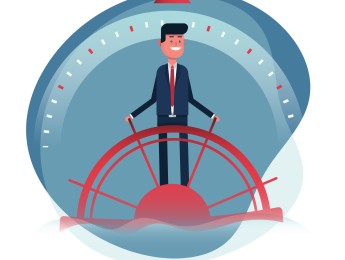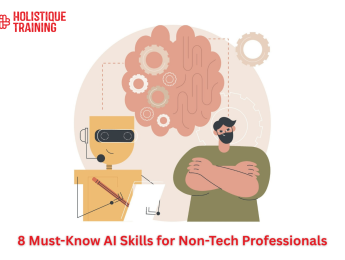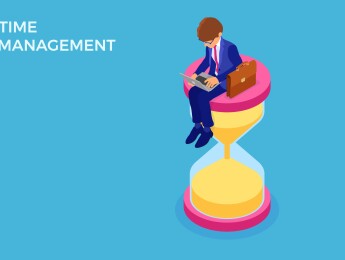- Table of Contents
- Introduction
- What is Behavioural Economics?
- The History of Behavioural Economics
- What Are the Main Principles of Behavioural Economics?
- Framing
- Heuristics
- Loss Aversion
- Market Inefficiencies
- Mental Accounting
- Sunk-Cost Fallacy
- Factors That Influence Behaviour
- Bounded Rationality
- Choice Architecture
- Cognitive Bias
- Discrimination
- Herd Mentality
- Social Norms
- Emotional Influences
- Temporal Factors
- Why is Behavioural Economics Important?zBehavioural economics plays a crucial role in understanding the complexities of human decision-making, offering insights that extend far beyond traditional economic theories. By incorporating psychological principles into economic models, behavioural economics sheds light on how people behave in real-world scenarios, allowing for more accurate predictions and effective interventions. Here are several key reasons why behavioural economics is important:
- Understanding Real-World Behaviour
- Improving Public Policy
- Enhancing Marketing Strategies
- Guiding Financial Decision-Making
- Addressing Market Inefficiencies
- Fostering Better Organisational Practices
- Promoting Sustainable Behaviour
- Advancing Research and Education
- The Difference Between Behavioural Economics and Psychology
- A Guide to Behavioural Economic Terms
- Nudge:
- Choice Overload:
- Status Quo Bias:
- Anchoring:
- Applications of Behavioural Economics
- Financial Markets
- Game Theory
- Pricing Strategies
- Product Packaging and Distribution
- Health Interventions
- Education and Learning
- Public Policy and Governance
- Consumer Behaviour Research
- Technology and User Experience (UX) Design
- What Do Behavioural Economists Do?
- Research and Analysis
- Developing Behavioural Models
- Policy Design and Evaluation
- Nudge Development
- Consulting for Organisations
- Educating and Training
- Interdisciplinary Collaboration
- Publishing and Disseminating Research
- Advocating for Behavioural Insights
- Staying Current with Developments
- Conclusion
Introduction
Economic theory has long been rooted in the assumption that individuals act rationally, making decisions that maximise their utility. However, real-world behaviours often tell a different story. The study of behavioural economics bridges the gap between traditional economic theory and psychology, focusing on how emotional, social, and cognitive factors influence decision-making processes. This blog post delves into the intriguing world of behavioural economics, exploring its principles, historical context, key factors that shape our decisions, its significance, applications, and the roles of behavioural economists.
What is Behavioural Economics?
Behavioural economics is a subfield of economics that integrates insights from psychology and sociology to understand how people make economic decisions. Unlike classical economics, which assumes that individuals are perfectly rational agents with complete information, behavioural economics recognises that people often rely on heuristics—mental shortcuts that simplify decision-making. These heuristics can lead to systematic biases and irrational behaviours, revealing a more nuanced picture of economic activity. By studying these behaviours, behavioural economists aim to uncover the complexities of human decision-making, shedding light on why individuals and markets do not always behave as traditional economic models predict.
The History of Behavioural Economics
The roots of behavioural economics can be traced back to the early 20th century, but it gained prominence in the late 20th century. The field began to emerge as psychologists and economists collaborated to study the cognitive processes behind economic decisions. Pioneering work by psychologists such as Daniel Kahneman and Amos Tversky laid the groundwork for integrating psychological insights into economic theory.
Kahneman and Tversky’s seminal 1979 paper, “Prospect Theory: An Analysis of Decision Under Risk,” challenged the expected utility theory that dominated economics at the time. They introduced the concept of loss aversion, demonstrating that individuals prefer avoiding losses over acquiring equivalent gains, fundamentally altering the understanding of risk and decision-making.
As behavioural economics gained traction, scholars began to explore its implications across various fields, including public policy, finance, and marketing. The 2002 Nobel Prize in Economic Sciences awarded to Kahneman for his work in this area further solidified the importance of behavioural economics in understanding human behaviour.
What Are the Main Principles of Behavioural Economics?
Behavioural economics encompasses several key principles that illustrate how psychological factors influence economic decision-making:
Framing
Framing refers to how information is presented and influences people's perceptions and decisions. This principle suggests that individuals can be swayed by the context or wording of information rather than the information itself. For instance, research has shown that when medical treatment is described in terms of survival rates (e.g., "90% chance of survival"), patients are more likely to opt for it compared to when the same treatment is framed in terms of mortality rates (e.g., "10% chance of death"). This principle highlights how subtle shifts in presentation can lead to dramatically different choices and underscores the importance of communication in marketing and policy design.
Heuristics
Heuristics are cognitive shortcuts or rules of thumb that individuals use to make decisions quickly and efficiently. While these mental shortcuts can be useful, they can also lead to systematic biases and errors in judgment. For example, the availability heuristic causes people to assess the probability of an event based on how easily examples come to mind. If a person has recently heard about a plane crash, they may overestimate the risks of flying compared to driving, despite statistical evidence showing that flying is much safer. Understanding heuristics helps predict consumer behaviour and design interventions that guide better decision-making.
Loss Aversion
Loss aversion is a core principle of behavioural economics, which posits that losses weigh more heavily on individuals than equivalent gains. This means that the pain of losing $100 is felt more intensely than the pleasure of gaining $100. This principle explains why people often prefer to avoid losses rather than pursue gains, leading to risk-averse behaviours. For instance, investors might hold onto losing stocks to recover losses instead of cutting them and reallocating their resources. Loss aversion has profound implications for financial decision-making, marketing strategies, and public policy, as it can drive individuals to make choices that do not align with their long-term interests.
Market Inefficiencies
Traditional economics assumes markets operate efficiently, where prices reflect all available information. However, behavioural economics reveals that psychological factors can lead to market inefficiencies. For instance, investor sentiment, overconfidence, and herd behaviour can drive prices away from their fundamental values, leading to bubbles and crashes. An example of this can be seen in the dot-com bubble of the late 1990s, where irrational exuberance led to inflated stock prices that eventually collapsed. Understanding market inefficiencies allows policymakers and investors to anticipate better and respond to fluctuations in the market.
Mental Accounting
Mental accounting refers to the tendency of individuals to categorise and treat money differently based on subjective criteria, such as its source or intended use. For example, people may treat their paycheck differently than a tax refund, often more willing to spend “found money” than their earned income. This principle illustrates how people may fail to recognise the fungibility of money, leading to suboptimal financial decisions. For instance, a person may splurge on a luxury item with a bonus while neglecting to save for retirement. Understanding mental accounting can help design financial products and policies that encourage better savings and spending habits.
Sunk-Cost Fallacy
The sunk-cost fallacy describes the tendency for individuals to continue investing in a losing proposition due to the resources (time, money, effort) they have already committed. This principle explains why individuals might continue funding a failing project or relationship, believing their past investments justify further commitment. A classic example is a person who has purchased tickets to a concert but feels obligated to attend despite being unwell, simply because they have already spent the money. Recognising the sunk-cost fallacy can help individuals and organisations make more rational decisions, encouraging them to evaluate future options based on potential outcomes rather than past investments.
The principles of behavioural economics provide critical insights into the often irrational ways people make decisions. By understanding concepts like framing, heuristics, loss aversion, market inefficiencies, mental accounting, and the sunk-cost fallacy, individuals and organisations can better navigate the complexities of human behaviour. These principles enhance our understanding of economic phenomena and empower policymakers, businesses, and individuals to design interventions and strategies that improve decision-making and outcomes. By integrating psychological insights into economic analysis, behavioural economics continues to reshape our understanding of the economic landscape.
Factors That Influence Behaviour
Behavioural economics recognises that human behaviour is influenced by many factors that often go beyond rational decision-making. These factors stem from cognitive limitations, social influences, and contextual elements that shape how individuals perceive choices and make decisions. Understanding these influences can help organisations and policymakers create environments that encourage better decision-making. Here’s a detailed exploration of the key factors that influence behaviour:
Bounded Rationality
Bounded rationality refers to the limitations of human cognitive capabilities, which constrain individuals' ability to make perfectly rational decisions. Proposed by Herbert Simon, this concept suggests that people are not fully informed and cannot process all available information due to time constraints and cognitive overload. As a result, individuals often settle for satisfactory solutions rather than optimal ones. For example, when shopping for a new car, a buyer may focus on a few key features and ignore other critical factors such as long-term costs and resale value. Recognising bounded rationality allows marketers and policymakers to simplify choices and reduce complexity, making it easier for individuals to make informed decisions.
Choice Architecture
Choice architecture involves the design of environments in which people make decisions, emphasising how the arrangement of options can influence outcomes. Richard Thaler and Cass Sunstein popularised this concept in their book "Nudge." The way choices are presented can significantly affect decisions, as certain layouts or formats can guide individuals toward particular options. For instance, placing healthier food options at eye level in a cafeteria can nudge people toward better dietary choices. By understanding choice architecture, businesses and policymakers can create environments that promote desired behaviours, such as increased savings or improved health outcomes.
Cognitive Bias
Cognitive biases are systematic patterns of deviation from norm or rationality in judgement, which affect how people process information and make decisions. Common cognitive biases include confirmation bias (the tendency to seek information that confirms existing beliefs), anchoring (relying too heavily on the first piece of information encountered), and overconfidence (overestimating one’s abilities or knowledge). These biases can lead to flawed decision-making and significantly impact financial choices, voting behaviour, and personal relationships. By recognising these biases, individuals and organisations can work to mitigate their effects, leading to more rational and informed decisions.
Discrimination
In this context, discrimination refers to the influence of social categories, stereotypes, and biases on decision-making processes. Individuals may make choices based on perceived characteristics of others rather than objective information. For instance, hiring managers may unconsciously favour candidates with similar backgrounds or characteristics, leading to a lack of diversity in the workplace. Discrimination can also manifest in consumer behaviour, where biases against certain groups affect purchasing decisions. Addressing discrimination requires awareness and training to minimise biases in decision-making and promote fairness in both organisational and societal contexts.
Herd Mentality
Herd mentality describes individuals' tendency to conform to a group's behaviours and opinions, often overriding their personal judgement. This phenomenon can be observed in various contexts, such as financial markets, social movements, and even product trends. For example, during a market rally, investors may purchase stocks simply because others are doing so, leading to inflated prices. In consumer behaviour, people may flock to buy a popular product, fearing they will miss out on a trend. Understanding herd mentality is essential for businesses looking to leverage social proof in their marketing strategies and for policymakers aiming to promote beneficial behaviours in society.
Social Norms
Social norms are unwritten rules that govern behaviour in a society or group, influencing individuals' actions based on perceived expectations. People often adjust their behaviours to align with the norms of their peers or society at large. For example, suppose recycling is a common practice in a community. In that case, individuals may be more likely to engage in recycling behaviours themselves, even if they do not have a strong personal conviction about it. Marketers and policymakers can harness social norms to encourage positive behaviours, such as increased participation in community programs or healthier lifestyle choices.
Emotional Influences
Emotions play a significant role in decision-making, often leading individuals to choose based on feelings rather than logic. Emotional responses can influence perceptions of risk, urgency, and importance. For instance, fear of loss may prompt impulsive financial decisions, while positive emotions associated with rewards can encourage risk-taking behaviour. Understanding the impact of emotions on decision-making can help businesses tailor their messaging and interventions to resonate more deeply with consumers, fostering engagement and loyalty.
Temporal Factors
Temporal factors refer to how the timing of decisions impacts behaviour. People often exhibit present bias, prioritising immediate rewards over long-term benefits. For instance, an individual may spend money on a vacation rather than save for retirement, even though the latter option may be more beneficial in the long run. Understanding temporal factors is crucial for designing interventions that promote long-term thinking and planning, such as using reminders for savings or structuring incentives that reward future-oriented behaviours.
In short, the factors influencing behaviour are diverse and complex, ranging from cognitive limitations and social influences to emotional responses and contextual elements. Businesses, policymakers, and individuals can create environments that promote better decision-making and positive outcomes by understanding these influences. Recognising the interplay between psychological factors and economic choices provides valuable insights that can be leveraged to design more effective strategies in marketing, public policy, and personal finance. Ultimately, the insights gained from behavioural economics can lead to improved decision-making processes and better overall outcomes for individuals and society as a whole.
Why is Behavioural Economics Important?
Behavioural economics plays a crucial role in understanding the complexities of human decision-making, offering insights that extend far beyond traditional economic theories. By incorporating psychological principles into economic models, behavioural economics sheds light on how people behave in real-world scenarios, allowing for more accurate predictions and effective interventions. Here are several key reasons why behavioural economics is important:
Understanding Real-World Behaviour
Traditional economics often relies on the assumption that individuals are rational actors who make decisions to maximise utility. However, human behaviour frequently deviates from this rational model due to cognitive biases, emotions, and social influences. Behavioural economics provides a more nuanced understanding of how people make choices in practice, accounting for the irrationalities and complexities that characterise everyday decision-making. This understanding is essential for creating more effective economic policies and business strategies that align with how people actually behave.
Improving Public Policy
Policymakers can leverage insights from behavioural economics to design interventions that promote beneficial behaviours among citizens. By understanding the factors influencing decision-making, such as cognitive biases and social norms, governments can implement "nudges" that guide individuals toward healthier, more sustainable, or financially responsible choices. For example, automatically enrolling employees in retirement savings plans while allowing them to opt out has increased participation rates significantly. Such strategies can lead to better societal outcomes without restricting individual freedoms.
Enhancing Marketing Strategies
Businesses can use behavioural economics to create more effective marketing campaigns and improve customer engagement. Companies can tailor their messaging and product offerings to resonate with their target audience by understanding how consumers think and behave. For instance, leveraging principles like scarcity (limited-time offers) or social proof (highlighting popular products) can drive consumer action and enhance brand loyalty. Additionally, insights into pricing strategies—such as anchoring or the effect of bundling—can help businesses maximise sales and profitability.
Guiding Financial Decision-Making
Behavioural economics is particularly relevant in the context of personal finance, where individuals often struggle with issues like saving, investing, and spending. By understanding the psychological barriers that lead to poor financial decisions—such as present bias or loss aversion—financial educators and advisors can develop tools and strategies to help clients make better choices. For example, using visual tools like budgeting apps that track progress can motivate individuals to save more effectively. This focus on behavioural insights can ultimately lead to improved financial literacy and better economic well-being.
Addressing Market Inefficiencies
Behavioural economics highlights how psychological factors, such as bubbles and crashes, can contribute to market inefficiencies. Recognising that investors may react irrationally to news, social trends, or their own emotions allows analysts and economists to understand market dynamics better and develop strategies to mitigate risks. For instance, understanding herd behaviour can help prevent the formation of asset bubbles by promoting educational initiatives that encourage critical thinking among investors.
Fostering Better Organisational Practices
Companies can benefit from applying behavioural economics to enhance employee engagement and performance. Understanding factors like motivation, incentives, and cognitive biases can inform HR practices and leadership strategies. For example, offering recognition and praise can foster a sense of belonging and increase employee satisfaction, while implementing flexible work arrangements can improve work-life balance and productivity. By applying behavioural insights, organisations can create healthier work environments that lead to better employee outcomes.
Promoting Sustainable Behaviour
Behavioural economics encourages sustainable behaviours that benefit the environment and society. By understanding how individuals perceive risks and rewards, policymakers and organisations can design campaigns that promote energy conservation, recycling, and responsible consumption. For instance, social comparisons (showing individuals how their energy use compares to that of their neighbours) can motivate people to reduce their consumption. These insights are crucial for addressing pressing global challenges such as climate change and resource depletion.
Advancing Research and Education
Behavioural economics continues to evolve, contributing to a deeper understanding of human behaviour across various disciplines. As researchers explore new theories and conduct experiments, they uncover valuable insights that can be applied to economics, psychology, sociology, and public policy. This interdisciplinary approach fosters collaboration and innovation, leading to the development of more effective tools and strategies for addressing complex societal issues.
Behavioural economics is essential for comprehending the intricate relationship between human behaviour and economic decision-making. By incorporating psychological principles into economic analysis, this field provides valuable insights that enhance public policy, marketing strategies, financial decision-making, and organisational practices. As societies face increasingly complex challenges, the importance of behavioural economics will only continue to grow, offering a framework for understanding and improving human behaviour in a rapidly changing world. Ultimately, by leveraging the insights gained from behavioural economics, individuals, businesses, and governments can work together to foster better decision-making and promote positive outcomes for all.
The Difference Between Behavioural Economics and Psychology
While behavioural economics and psychology share common ground, they focus on different aspects of human behaviour. Behavioural economics applies psychological principles to economic decision-making to understand how cognitive biases and social influences affect economic outcomes. In contrast, psychology encompasses a broader study of human behaviour, emotions, and mental processes without a specific focus on economic contexts. Behavioural economists often draw on psychological theories but apply them within the economic decision-making framework.
Aspect | Behavioural Economics | Psychology |
Focus | Studies economic decisions and market behaviour | Explores human behaviour and mental processes |
Methodology | Utilises experiments and statistical analysis | Employs qualitative and quantitative research |
Applications | Affects policy-making and economic strategies | Influences therapy, education, and personal development |
Key Concepts | Incorporates biases, heuristics, and framing effects | Examines cognition, emotion, and social behaviour |
Goals | Aims to improve economic outcomes and decision-making | Seeks to understand behaviour and enhance well-being |
Table: Comparing behavioural economics and psychology
A Guide to Behavioural Economic Terms
To navigate the field of behavioural economics effectively, it's essential to understand some key terms:
Nudge:
A nudge is a subtle change in the choice of architecture that influences people's behaviour without restricting their options. For example, placing healthy snacks at eye level in a cafeteria can nudge individuals toward healthier choices.
Choice Overload:
This phenomenon occurs when individuals are presented with too many options, leading to indecision or dissatisfaction. Simplifying choices can help individuals make better decisions.
Status Quo Bias:
This bias refers to the preference for the current state of affairs, leading individuals to resist change. Understanding this bias can aid in implementing changes in organisations and policies.
Anchoring:
There is a tendency to rely heavily on the first piece of information encountered when making decisions. For instance, the initial price of a product can anchor perceptions of its value.
Applications of Behavioural Economics
Behavioural economics has various practical applications, influencing how organisations, policymakers, and individuals make decisions. By understanding the psychological factors that drive behaviour, these applications can lead to more effective finance, marketing, health, and public policy strategies. Below are some of the key areas where behavioural economics is being applied:
Financial Markets
Behavioural economics has significantly impacted how we understand investor behaviour in financial markets. Traditional finance assumes that investors act rationally to maximise their returns, but behavioural insights reveal that emotions, cognitive biases, and social factors often drive investment decisions. For example, concepts like loss aversion—where individuals prefer to avoid losses rather than acquire equivalent gains—can lead to panic selling during market downturns and irrational exuberance during booms. Understanding these behaviours helps financial analysts and fund managers develop strategies to mitigate risks and improve investment performance, such as employing behavioural finance theories to predict market trends and investor sentiment better.
Game Theory
Behavioural economics enhances traditional game theory by incorporating human psychology into strategic decision-making. Classic game theory assumes rational behaviour among participants; however, behavioural insights reveal that trust, cooperation, and social preferences can significantly influence outcomes. For instance, in public goods games, players often cooperate more than traditional theory predicts, influenced by social norms and the desire to contribute to group welfare. This understanding can improve negotiations, enhance collaboration in business environments, and foster better outcomes in competitive situations, such as international diplomacy or corporate strategy.
Pricing Strategies
Companies utilise behavioural economics to design effective pricing strategies that align with consumer psychology. By understanding how people perceive value, businesses can implement pricing models that maximise sales and profits. Techniques such as price anchoring—where initial price information influences perceptions of subsequent prices—can lead consumers to perceive discounts more favourably. Moreover, businesses can use tiered pricing or bundling strategies to present options that guide consumers toward higher-value purchases. For example, offering a basic, premium, and deluxe product version allows customers to compare options more easily, leading to increased sales of the higher-tier items.
Product Packaging and Distribution
Behavioural economics informs product packaging and distribution strategies to enhance consumer engagement and decision-making. Packaging design can influence perceptions of quality, value, and desirability, thus affecting purchase decisions. Research has shown that using bright colours, clear labelling, and environmentally friendly materials can attract consumers and encourage purchases. Furthermore, placing products within stores, such as positioning healthier options at eye level or near checkout counters, can significantly impact consumer choices. By leveraging these insights, companies can create compelling shopping experiences that drive sales and promote desired behaviours.
Health Interventions
Public health widely uses behavioural economics to promote healthier behaviours and prevent disease. Understanding how individuals make health-related decisions enables the design of interventions that effectively encourage positive choices. For instance, using nudges like reminders for vaccinations or screenings can help increase participation rates. Additionally, framing health messages in terms of benefits (e.g., "Quitting smoking improves your health") rather than costs (e.g., "Smoking causes lung cancer") can motivate individuals to take action. Behavioural insights also inform the development of programs that incentivise healthy behaviours, such as rewards for gym attendance or discounts on health insurance premiums for maintaining a healthy lifestyle.
Education and Learning
Behavioural economics has applications in education, helping educators design curricula and learning environments that enhance student engagement and retention. Educators can create more effective teaching strategies by understanding how students learn and what motivates them. For instance, incorporating gamification—using game design elements in educational contexts—can increase motivation and participation among students. Furthermore, setting specific goals and providing feedback on progress can help students develop a growth mindset, leading to improved academic outcomes. Understanding cognitive biases, such as the Dunning-Kruger effect (where individuals overestimate their abilities), can also guide instructional approaches and assessments.
Public Policy and Governance
Governments can use behavioural economics to craft policies that improve societal outcomes. Policymakers can encourage citizens to engage in beneficial practices by designing interventions considering human behaviour. For example, auto-enrollment in retirement savings plans, coupled with opt-out options, significantly increases participation rates compared to traditional opt-in approaches. Similarly, using social comparisons to inform individuals about their energy usage relative to their neighbours can motivate them to reduce consumption. Behavioural insights can also enhance regulatory practices by identifying potential pitfalls in compliance and designing clearer communication strategies that improve understanding and adherence.
Consumer Behaviour Research
Companies conduct consumer behaviour research using behavioural economics principles to gain insights into purchasing habits and preferences. Businesses can tailor their products, services, and marketing strategies by analysing how consumers make decisions. For example, companies may use A/B testing to determine which marketing messages resonate more with target audiences, incorporating behavioural insights to predict responses accurately. Additionally, analysing data on consumer behaviour, such as purchase history and engagement patterns, can inform product development and inventory management, leading to better alignment with customer needs.
Technology and User Experience (UX) Design
Behavioural economics is increasingly applied in technology and user experience design to create more intuitive and engaging digital interfaces. By understanding how users interact with technology, designers can optimise layouts, navigation, and features to enhance user satisfaction and drive desired actions. For instance, incorporating elements of choice architecture, such as default settings or personalised recommendations, can guide users toward beneficial behaviours, such as completing tasks or purchasing. Additionally, awareness of cognitive biases can inform design decisions that reduce friction in user interactions, leading to more seamless experiences.
In summary, the applications of behavioural economics span a wide range of fields, demonstrating its versatility and relevance in addressing real-world challenges. By integrating psychological insights into various domains—such as finance, marketing, health, education, and public policy—behavioural economics provides valuable tools for understanding and influencing human behaviour. As organisations and policymakers increasingly recognize the importance of these insights, they can design interventions that align with human behaviour and promote positive outcomes for individuals and society as a whole. The ongoing exploration of behavioural economics promises to yield further innovations and improvements in decision-making, leading to a more nuanced understanding of human behaviour in an ever-changing world.
What Do Behavioural Economists Do?
Behavioural economists are pivotal in bridging the gap between economic theory and real-world human behaviour. By applying insights from psychology and sociology, they analyse decision-making processes, develop models to explain economic phenomena, and design interventions that promote positive outcomes. Their work spans various sectors, including academia, government, private industry, and non-profit organisations. Here’s an in-depth look at the diverse roles and responsibilities of behavioural economists:
Research and Analysis
One of the primary responsibilities of behavioural economists is to research and understand how psychological factors influence economic decisions. They design experiments, surveys, and observational studies to gather data on consumer behaviour, market dynamics, and public policy effectiveness. By employing rigorous statistical methods and analytical techniques, they identify patterns and correlations that shed light on the complexities of human decision-making. This research helps develop theories that expand the traditional economic models, integrating behavioural insights into economic analysis.
Developing Behavioural Models
Behavioural economists work to create models that incorporate psychological variables into traditional economic frameworks. These models help explain phenomena that classical economics often overlooks, such as why people fail to save for retirement or why they exhibit irrational behaviour during financial crises. By developing and refining these models, behavioural economists contribute to a more comprehensive understanding of economic behaviour, allowing for better predictions and more effective policy interventions. For instance, they might model how cognitive biases like anchoring and framing affect consumer choices and market outcomes.
Policy Design and Evaluation
Behavioural economists often collaborate with government agencies and non-profit organisations to design and evaluate public policies. They apply behavioural insights to create interventions that encourage desirable behaviours among citizens, such as increasing savings rates, improving health outcomes, or promoting environmentally sustainable practices. By conducting pilot studies and field experiments, they assess the effectiveness of these policies, using data to make informed adjustments. This evidence-based approach ensures that policies are not only theoretically sound but also practical and impactful in real-world contexts.
Nudge Development
A key aspect of behavioural economics is the concept of "nudging"—subtle environmental changes that influence people's decisions without restricting their choices. Behavioural economists design and implement nudges to guide individuals toward better choices. For example, they might develop default options in retirement savings plans (e.g., automatic enrollment) or change how choices are presented to make healthier food options more prominent in school cafeterias. By understanding how context affects behaviour, behavioural economists can create effective nudges that improve outcomes in various domains, from healthcare to education.
Consulting for Organisations
Many behavioural economists work as business consultants, helping them apply behavioural insights to improve their operations, marketing strategies, and customer engagement. They analyse consumer behaviour to inform product design, pricing strategies, and promotional campaigns. For instance, they might research how consumers respond to different pricing structures or test marketing messages to determine which resonates best with target audiences. By leveraging behavioural insights, businesses can enhance customer satisfaction, increase sales, and foster brand loyalty.
Educating and Training
Behavioural economists often engage in educational activities, teaching courses at universities or conducting workshops and seminars for organisations. They aim to raise awareness about the importance of behavioural insights in decision-making and economic policy. Through education, they equip students, policymakers, and business leaders with the knowledge to effectively understand and apply behavioural principles. By fostering a deeper understanding of behavioural economics, they contribute to a broader recognition of its relevance in various fields.
Interdisciplinary Collaboration
The field of behavioural economics is inherently interdisciplinary, drawing on insights from psychology, sociology, neuroscience, and political science. Behavioural economists often collaborate with professionals from these disciplines to gain a more holistic understanding of human behaviour. For example, they might work with psychologists to explore the cognitive processes underlying decision-making or with sociologists to examine how social influences shape behaviour. This collaboration enriches their research and enhances the applicability of their findings across different contexts.
Publishing and Disseminating Research
Behavioural economists contribute to the academic community by publishing their research in journals, presenting at conferences, and participating in public discussions. They aim to disseminate their findings to a broader audience, including policymakers, business leaders, and the general public. By sharing insights from their research, they promote a greater understanding of the complexities of human behaviour and its implications for economic decision-making. This dissemination is crucial for translating academic research into practical applications and policy recommendations.
Advocating for Behavioural Insights
Many behavioural economists advocate for integrating behavioural insights into economic policy and business practices. They work to raise awareness about the importance of considering human behaviour in decision-making processes and encourage organisations and governments to adopt a more behavioural approach. By participating in public discussions, writing opinion pieces, and engaging with stakeholders, they aim to influence policy agendas and promote the adoption of evidence-based strategies that improve societal outcomes.
Staying Current with Developments
Behavioural economics is continually evolving, with new research and insights emerging regularly. Behavioural economists actively engage with the latest studies, theories, and methodologies to stay informed about developments in the field. This ongoing education allows them to refine their approaches, adopt new techniques, and apply cutting-edge research. Staying current is essential for maintaining relevance in a rapidly changing economic landscape and effectively addressing emerging challenges.
Behavioural economists play a vital role in advancing our understanding of human behaviour and its impact on economic decision-making. They bridge the gap between theoretical models and real-world applications through research, policy design, consulting, and education. Their work contributes to creating more effective policies, enhancing business practices, and fostering a deeper understanding of the complexities of human behaviour. As behavioural economics continues to grow and evolve, the contributions of behavioural economists will be instrumental in addressing societal challenges and improving outcomes across various domains. Applying insights from psychology and economics helps create a more nuanced and effective approach to understanding and influencing human behaviour.
Conclusion
The study of behavioural economics illuminates the complex interplay between psychology and economic decision-making. By recognising the limitations of rationality and understanding the factors that influence behaviour, this field offers valuable insights for individuals, businesses, and policymakers. The principles of behavioural economics provide a framework for understanding why people make their choices, ultimately leading to better decision-making and improved outcomes. As the field continues to evolve, its applications will undoubtedly play a significant role in shaping the future of economics and public policy.
























